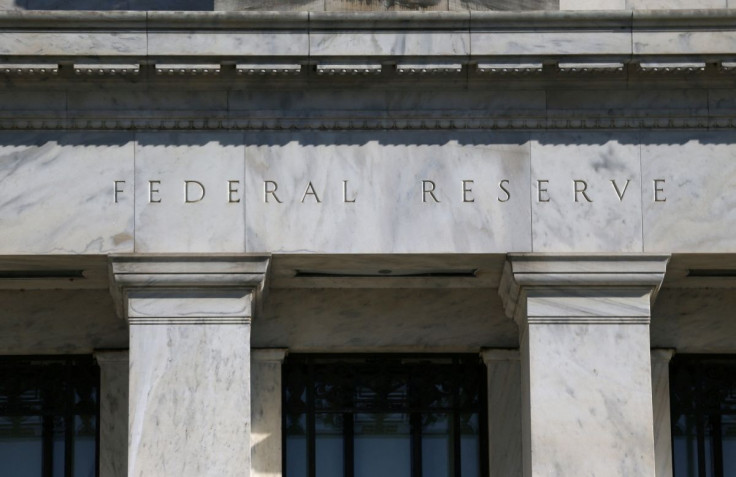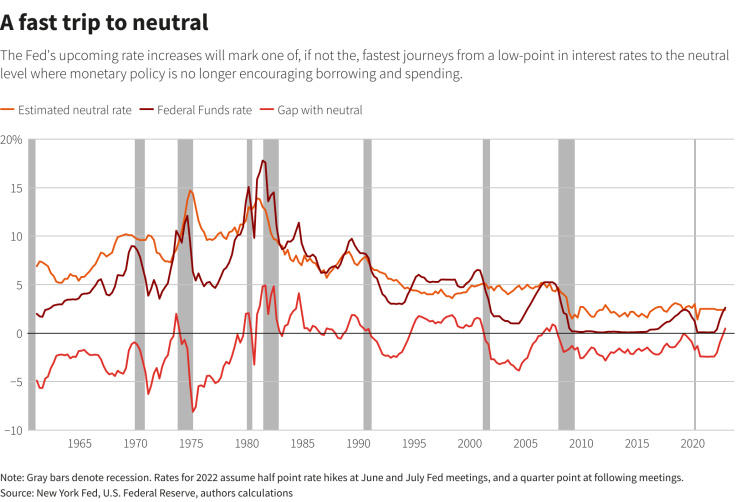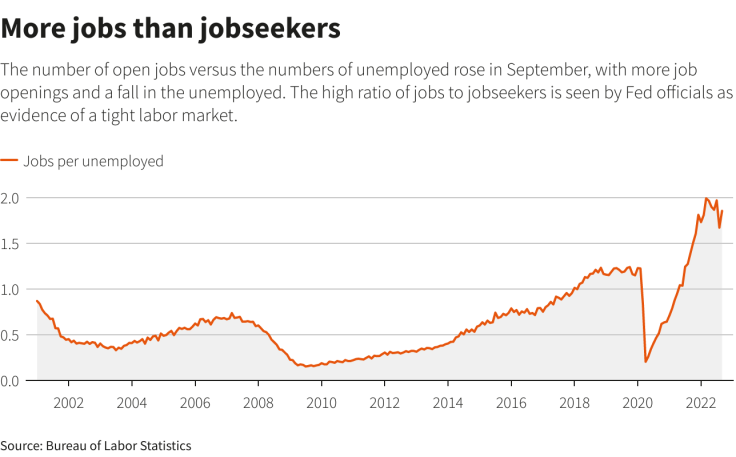Fed Rallied Around Big Rate Hike Amid Worry Over Eroding Inflation Outlook, Minutes Show

A deteriorating inflation situation and concern about lost faith in the Federal Reserve's power to make it better prompted U.S. central bank officials to rally around an outsized interest rate increase and a firm restatement of its intent to get prices under control, minutes of the June 14-15 policy meeting showed.
Based on data released in the days prior to the session, "participants concurred ... that the near-term inflation outlook had deteriorated since the time of the May meeting," the minutes stated, justifying the 0.75-percentage-point increase and a move to "restrictive" monetary policy.
With families stressed by rising food and gas prices, and no evidence Fed actions to date had begun to arrest the fastest surge of inflation in 40 years, "many participants judged that a significant risk ... was that elevated inflation could become entrenched if the public began to question the resolve of the (Federal Open Market) Committee to adjust the stance of policy as warranted," according to the minutes, which were released on Wednesday.
The result was the first 0.75-percentage-point rate increase since 1994, and the promise of more to come, with participants judging that an increase of 50 or 75 basis points would likely be appropriate at the policy meeting later this month.
The group, in a show of unanimity that has erased typical fault lines between inflation "hawks" and "doves," noted the need to mountain a public communications campaign that would leave no doubt they were "strongly committed" to winning the inflation war.
Since then, Fed Chair Jerome Powell has amped up his own rhetoric, declaring last week there was a "clock running" on the Fed to show it could tame prices before public psychology begins to change.
There was concern at the meeting that was already underway, with "many participants" worried that "longer-run inflation expectations could be beginning to drift up."
The minutes did not mention the risk of recession outright, and in fact Fed officials said they thought data showed U.S. gross domestic product "was expanding in the current quarter," with the job market still tight.
But they acknowledged the risks were to the downside, and in particular that Fed policy could have a larger than anticipated impact.
"Participants concurred that the economic outlook warranted moving to a restrictive stance of policy, and they recognized the possibility that an even more restrictive stance could be appropriate if elevated inflation pressures were to persist," the minutes said.
Investors currently expect the Fed to approve another 75-basis-point rate increase at the upcoming July 26-27 meeting as part of what has become a rapid shift in monetary policy.
Less than a year ago, officials were still pledging to keep the monetary taps wide open, with a near-zero fed funds rate and $120 billion in monthly money-creating bond purchases, until there was "substantial further progress" in the job market and inflation was "moderately on track" to exceed the Fed's 2% target "for some time."
Graphic: A fast trip to neutral A fast trip to neutral -

Now officials are staring at a job market considered unsustainably tight - new data for May showed there are still nearly two open jobs for each unemployed person - with inflation lodged at a 40-year high and policymakers saying they are willing to court an economy-wide recession in order to keep public expectations about inflation in check.
Graphic: More jobs than jobseekers -

© Copyright Thomson Reuters {{Year}}. All rights reserved.





















